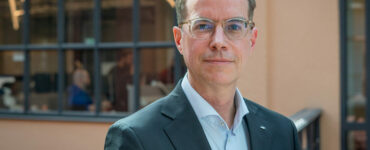Idag hade jag äran att tala inför OSSE (Organization for Security and Co-operation in Europe), världens största regionala säkerhetsorganisation med medlemmar runt hela jordklotet. Verkligen hedrande, och med mitt tal ville jag belysa kvinnor och investeringar och varför jämställdhet kräver ekonomisk jämlikhet.
Jag blev för en tid sedan tillfrågad av den svenska delegationen inom OSSE att tala på ett av deras möten, som ägde rum idag den 22 april. Verkligen hedrande, och ett minst sagt annorlunda sammanhang att medverka i.
Jag var alltså gästtalare på eventet och valde att fokusera på kvinnor och investeringar, om det faktum att kvinnor mer sällan än män har ett eget sparande och att de mer sällan investerar på börsen. Och vad detta beror på, vilka konsekvenserna blir och vad vi kan göra åt det.
En hjärtefråga för mig, och en fantastisk chans att sprida det budskap som Nordnet står för; alla borde ha ett eget sparande!
Hela 57 stater var representerade på mötet och värdland var Albanien. OSSE:s högkvarter ligger i Wien, och i vanliga fall hade detta inneburit en resa till Wien och tal inför de samlade delegationerna. Men med anledning av corona har man för första gången valt att hålla mötet digitalt.
Som sagt, en ära och en fantastisk möjlighet att sprida Nordnets budskap om att alla bör ha ett eget sparande och att kvinnor liksom män bör våga investera på börsen.
Nedan ser ni mitt anförande.

Mitt anförande
My name is Frida Bratt and I work as a savings economist at Nordnet, a digital bank with focus on savings. The most important tasks in my role is to explain, to guide and to help people take better decisions for their savings.
I am very honored and thankful for having the opportunity to share my views with you here today. So thank you all, and especially thanks to the Swedish delegation. The subject of my speech is something that I have worked with for many years and that I´m personally really passionate about.
The swedes are a saving people. If you look internationally, we are a people where it´s common to invest the households savings on the stock market. It has benefitted us. From the year 2000 to 2020, before the corona crisis, the Stockholm stock exchange has risen over 300 percent. And this despite the dotcom bubble in 2001-2002 and the financial crisis in 2008.
The problem
The problem is this: Not everybody is a part of this great development. In Sweden, we can see that female academics has a life salary, that is 260000 euros lower than men, according to Saco, a union for academics. That is a breathtaking amount, and it is due to both salary differences and the fact that women to a lesser extent actually save and invest money.
First of all, we can see that women to a lesser extent than men have their own savings. According to a survey conducted by the research company Yougov on behalf of Nordnet, only one out of three women has a savings amount that is large enough to allow a change in their own life situation, for example change job or leave a relationship.
A reason for that is, unfortunately, that women more often are the financially weaker part in a relationship. Their wages are more often lower, due to a greater responsibility for home and family, according to numbers from the Swedish Social Insurance Agency. This of course makes it more difficult to put money into your own savings account, in addition to the household´s common savings.
An important task for me as a savings economist is therefore to encourage, not only women but everyone, to actually have their own savings account, which allows a change of life situation – if needed. It increases the sense of freedom and safety and it is important for building self-esteem.
But at least equally challenging is not only to convince women to have their own savings, but also to invest their money. At Nordnet, which enables private persons to invest in funds or shares, only one out of three customers are women. A survey that the research firm Yougov did on behalf of Nordnet shows that only 4 percent of women state that they are willing to take a high risk to maximize their return. 39 per cent of women can accept a slightly higher risk to get a slightly higher return, while the corresponding figure of men is 49 per cent.
This is despite the fact that savings often are in the long term and therefore should withstand fluctuations. The way the pension system is structured in Sweden, with a fairly large possibility to invest some of your pension money yourself, a risk aversion that goes too far can actually lead to a lower pension.
Then why is it that women are less likely to have their own savings and less often make their money grow by investing them?
Much is related to financial self-confidence. A report from the investment bank JP Morgan showed that 30 per cent of women in Europe estimate that they have a self-confidence over the average, while the equivalent for men is 50 per cent. The same report shows that 34 per cent of women say they have strong self-confidence when it comes to managing money, while the corresponding figure among men is 46 per cent. Only one in five women feel that they have good knowledge in financial matters, while one in three men think they have good knowledge.
So, what are the consequences of women having less financial self-confidence, that they have less savings of their own and that they dare to invest in the stock market to a lesser extent?
It is about safety. Women who do not have their own savings and do not take measures to make their money grow risk a lower pension. But it is also about social safety. In individual situations, economic inequality and the lack of capital for women can, for example, lead to women staying in relationships that they really want to leave.
So, what can we do about this?
I think we need to understand that both politicians and the financial industry should take more responsibility for increasing financial and economic knowledge, not just for women but for everyone. One way to achieve this is to make personal finance a required subject in elementary schools. Hopefully, that could bring a better understanding for budgeting and saving, but also of risk, volatility and the potential for returns.
The financial industry, at least in Sweden, still earns far too much from making savings and investments incomprehensible and complicated. This requires a change of mind and the use of a far easier language.
Progress have been made with EU common rules on fund information for savers, for example, but this must be constantly improved. We have to ensure that it´s just not just more information to private investors, but better and easier to understand.
A more equal sharing of household works gives women more time to both work and to take care of their investments. We should therefore generally encourage men to take greater responsibility for the household.
I also think that role models are important. Female influencers that can inspire other women to take care of their savings.
So, to summarize: women save less than men, and when they save, they are less willing to invest the money. This depends on both lower wages, higher responsibility for household work and lower self-confidence. This leads to financial inequality.
And I am convinced that financial equality is a main key to gender equality.
Thank you. And stay home, stay safe.



Frida som nästa statsminister? *hoppas*